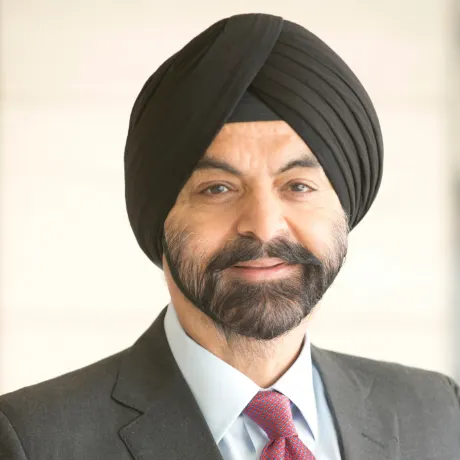The World Bank has announced that it will consider Nigeria’s request for a new $1 billion loan aimed at boosting economic growth, job creation, and private investment. The approval date has been tentatively fixed for December 16, 2025, according to an official project document released by the Bank on October 27.
The loan will be provided under a new initiative known as “Nigeria Actions for Investment and Jobs Acceleration (P512892)”, and it will be implemented through the Federal Ministry of Finance. The facility includes a $500 million International Development Association (IDA) credit and a $500 million International Bank for Reconstruction and Development (IBRD) loan, both forming part of the World Bank’s broader support for Nigeria’s ongoing economic reforms.
The World Bank explained that the new package is designed to help Nigeria move from short-term economic stabilisation to long-term, inclusive growth. It said the programme would “support Nigeria’s pivot from stabilisation to inclusive growth and job creation” by promoting private investment, deepening capital markets, and improving access to digital and financial services.
Since 2023, Nigeria has launched a series of bold economic reforms under President Bola Ahmed Tinubu’s Renewed Hope Agenda. These include the removal of petrol subsidies, unification of the foreign exchange rate, and an end to direct central bank deficit financing.
According to the Federal Government, these reforms have stabilised the economy, narrowed the fiscal deficit, and restored some investor confidence. However, growth remains slow, inflation is still high, and over 130 million Nigerians continue to live in poverty.
The World Bank noted that while macroeconomic stability has returned, “Nigeria’s economy has yet to shift decisively into a higher and inclusive growth path.” It said the new loan will help strengthen reform momentum and provide targeted support to sectors capable of creating jobs and lifting people out of poverty.
The Development Policy Financing (DPF) operation will be disbursed in two tranches as Nigeria meets specific policy milestones. The programme focuses on two main pillars:
Unlocking private sector growth and expanding opportunities across key sectors such as agriculture, trade, and digital services.
Lowering the cost of doing business and supporting macroeconomic stability to improve living standards for households and firms.
Under the first pillar, the facility will strengthen access to finance, promote digital inclusion, and enhance investor confidence. The World Bank document highlights support for the proposed Investment and Securities Act 2025, credit enhancement facilities, and a new Central Bank of Nigeria Rulebook aimed at improving oversight of microfinance and non-bank financial institutions.
It will also support the National Digital Economy and E-Governance Bill 2025, which seeks to provide a legal framework for electronic transactions, authentication services, and digital record-keeping. The bill is expected to advance Nigeria’s shift toward a paperless, technology-driven government system.
The second pillar focuses on lowering production costs, reducing inflationary pressures, and enhancing export competitiveness. Planned actions include simplifying trade barriers, adopting African Continental Free Trade Area (AfCFTA) tariff concessions, and improving seed systems for crops like rice, maize, and soybeans.
According to the Bank, these measures will boost agricultural productivity, enhance food security, and attract private investment into the agricultural value chain.
The $1 billion policy loan forms part of a larger World Bank support package for Nigeria’s FY2026 growth agenda. Other related programmes include:
FINCLUDE Project – aimed at improving access to finance for Micro, Small, and Medium Enterprises (MSMEs).
BRIDGE Project – focusing on expanding digital infrastructure and connectivity.
AGROW Programme – promoting growth in agricultural value chains.
Together, these initiatives are expected to attract private investment, expand access to finance, and create millions of direct and indirect jobs.
The World Bank said the policy reforms supported by this new operation would help reduce food inflation, promote digital exports, and increase productivity. Improved access to credit for smallholder farmers and MSMEs would “expand economic opportunities, especially for the poor and vulnerable.”
In addition, the programme aligns with the Paris Climate Agreement, incorporating components that promote climate-resilient agriculture, reduce deforestation, and improve energy efficiency through digital governance systems that minimise paper use.
The Bank estimates that these efforts will not only boost productivity and job creation but also strengthen Nigeria’s ability to respond to global economic and environmental challenges.
As of June 30, 2025, data from the Debt Management Office (DMO) showed that Nigeria’s external debt stood at $46.98 billion. The World Bank Group remains the country’s single largest external creditor, with a combined exposure of $19.39 billion — including $18.04 billion from the IDA and $1.35 billion from the IBRD.
This means the World Bank accounts for 41.3 per cent of Nigeria’s total external debt, reflecting its significant role in financing Nigeria’s development programmes.
The new World Bank-backed initiative aims to complement these reforms by providing resources to ease inflationary pressures, improve productivity, and expand job opportunities. By investing in agriculture, digital infrastructure, and financial inclusion, the Bank hopes to support Nigeria’s transition to a more diversified and resilient economy.
If approved, the loan could become one of the largest World Bank policy support operations in Nigeria’s recent history. Its success will depend on how well the government implements the agreed reforms and ensures transparency in the use of funds.

Leave a Reply